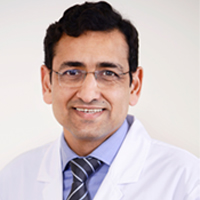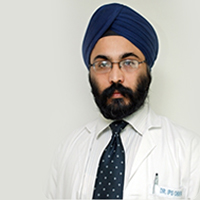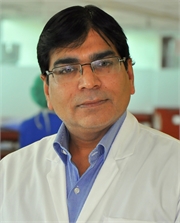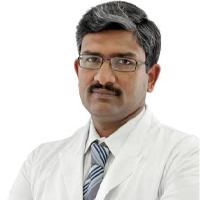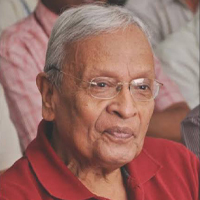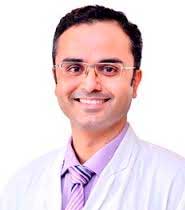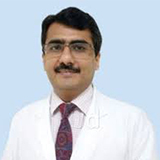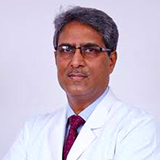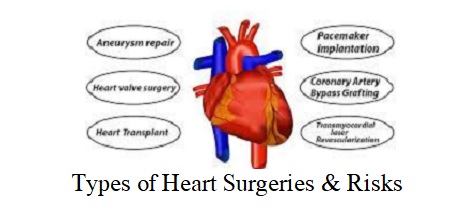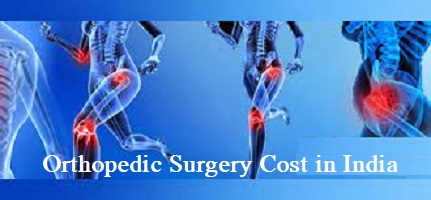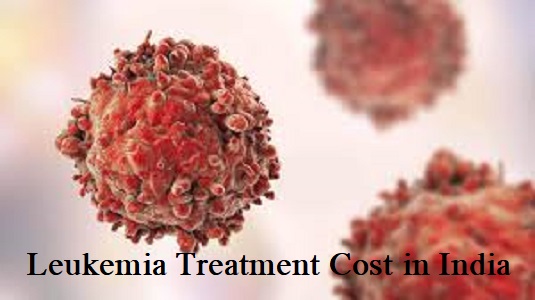Heart Cancer: Cause, Symptoms, Types, Treatment, Cost & Complications
One very rare type of primary malignant tumor that develops inside the heart is heart cancer. Less than 2 out of every 100,000 people have primary cardiac cancer each year, and most of these tumors are benign. The heart is resistant to the development of cancer because of its connective tissue composition and sluggish cell turnover. Heart cancer can afflict both men and women, although it is more common to strike those in their 30s to 50s. You will get detail about heart cancer treatment, cost, risk, causes etc.
A slightly greater risk may be posed by factors such as smoking and AIDS. Also, there is a greater risk of secondary heart cancer, which is brought on by cancer cells spreading from other organs. Leukemia, lymphoma, kidney, lung, breast, melanoma, and lymphoma are common causes of cardiac metastases. Heart cancer is challenging to treat and often recurs. Many top heart cancer treatment hospitals in India reports an average survival of 26.2 months for patients diagnosed with malignant heart cancer.
What are the types of Heart Cancer?
There are many various kinds of heart cancer, and primary cardiac cancers are very rare. Some of the types of heart cancer are:
- Cardiac Sarcoma: Heart cancer with a high incidence rate and potential for metastases is called cardiac sarcoma. It belongs to the group of uncommon tumors called sarcomas, which arise in connective or soft tissues. About 0.7% of cancer diagnoses are cardiac sarcomas, which represent a tiny portion of total sarcomas. When cardiac sarcomas are at advanced stages, they may show no symptoms at all. Radiation therapy, chemotherapy, and surgery are among the available treatment options.
- Other Sarcomas: Angiosarcoma, rhabdomyosarcoma, pleomorphic sarcoma, undifferentiated sarcoma, leiomyosarcoma, fibrosarcoma, liposarcoma, and osteosarcoma are a few more sarcomas that may affect the heart.
- Malignant Heart Tumors: In addition to sarcomas, additional malignant heart tumors include primary lymphoma, an exceedingly rare range associated with compromised immune systems, and pericardial mesothelioma, which severely restricts heart mobility and poses considerable risks.
- Benign Heart Tumors: These benign heart tumors have a variety of characteristics and often arise in the left atrium. Examples include myxoma, fibroma, papillary fibroelastoma, lipoma, and hemangioma.
What are the symptoms of Heart Cancer?
Heart cancer is a very rare disease. It is uncommon for cancer to start in the heart. The majority of tumors discovered in the heart are not primary tumors, but rather metastases from other areas of the body.
If there is a heart cancer, the following symptoms could be present:
- Irregular heartbeat (arrhythmia): Abnormal electrical signals in the heart can be interfered with by cardiac cancers, resulting in irregular heartbeats.
- Chest pain: Cancers may cause discomfort or chest pain by pressing on the surrounding structures.
- Fatigue: Weakness and exhaustion may result from the tumor’s reduced blood supply and pumping efficiency.
- Breathing difficulties: Cancers may interfere with the heart’s regular function, making breathing difficult.
- Fluid retention: Heart cancers can obstruct regular blood flow, which can result in an accumulation of fluid in the legs, ankles, or abdomen.
What are the causes of Heart Cancer?
The majority of primary heart cancers in adults are angiosarcomas, an extremely rare type of malignant soft tissue tumor. Although the precise etiology of angiosarcoma is yet unknown, exposure to radiation and certain chemicals is one possibility. A genetic predisposition may be implied by the familial occurrence of angiosarcomas, with certain cases being associated with mutations in the telomeres protein 1 (POT1) gene’s protective sequence. If inherited, this genetic abnormality may raise the risk of primary heart cancer. It’s important to highlight that secondary heart cancer is far more prevalent than primary heart cancer, with the former developing elsewhere in the body and the latter spreading to the heart.
What are the risks associated with Heart Cancer?
Some of the risk factors associated with heart cancer are:
Cardiovascular Complications: Heart cancer increases the risk of life-threatening conditions such as heart attacks, strokes, and severe heart failure by having a major effect on heart function.
Bloodstream Dissemination: Broken cardiac tumor fragments can enter the bloodstream and spread, possibly leading to blood clots. If these clots become trapped in important veins, they may cause brain strokes or lung pulmonary issues.
Pericardial Involvement: Heart cancer can cause inflammation known as pericarditis, which is caused by damage to the pericardium. Doctors may utilize pericardiocentesis, a treatment that involves draining extra fluid from the heart using a catheter and analyzing the fluid’s cells for diagnostic reasons, to relieve pressure on the heart.
Cardiovascular Disease and Cancer: Obesity, poor diet, inactivity, tobacco use, alcohol abuse, and diabetes are among the risk factors that are common to both heart disease and cancer.
Unknown Causes: There are few established risk factors for heart cancer, and the cause of the disease is still mainly unknown. Certain tumors have age-specific tendencies; they tend to arise in adults or children more frequently. A few types might also be linked to genetic cancer syndromes or have a hereditary component.
Immune System Influence: People with weakened immune systems are more likely to develop primary cardiac lymphoma, a type of heart cancer, suggesting a possible connection between immunological function and specific heart cancer types.
What is the diagnosis for Heart Cancer in India?
- Echocardiogram (Echo): The echocardiogram, or “Echo,” is a vital noninvasive test that uses sound waves to look at the heart’s chambers and valves and provides precise images of the position and size of cancers.
- Electrocardiogram (ECG or EKG): An electrocardiogram, often known as an EKG or ECG, records the electrical activity of the heart and looks for irregular heartbeats and possible muscle injury. A clear diagnosis of cardiac sarcoma requires further diagnostic tests, even though rhythm abnormalities may indicate the condition.
- Computed Tomography (CT) Scan: The Computed Tomography (CT) scan uses computer technology and X-rays to provide comprehensive images that help in determining the characteristics, location, and size of the tumor.
- Magnetic Resonance Imaging (MRI): With the use of magnets, radiofrequency technology, and a computer, magnetic resonance imaging (MRI) creates finely detailed images that provide information on the location, size, and characteristics of the tumor.
- Chest X-ray: A chest X-ray can identify pulmonary congestion or an enlarged heart by using electromagnetic energy beams to create images.
- Cardiac catheterization: It involves taking X-rays to find narrowing, occlusions, and other irregularities in certain arteries after injecting a contrast agent into the artery.
- Biopsy: A biopsy is the removal of a tiny sample of tissue for microscopic analysis to confirm the presence of cancer.
- Blood Tests: Comprehensive blood tests, such as a complete blood count (CBC), can help identify potential heart cancer indications and help in the diagnosing process.
- Imaging Tests for Detection: When using imaging tests like CT scans, heart MRIs, and ultrasounds to look into cardiac issues, doctors may unintentionally find heart cancers.
- Cardiovascular Magnetic Resonance (CMR): A specialist MRI used for in-depth examination, helping in the distinction between malignant and non-cancerous cancers, and evaluating certain features.
What are the different treatment options for Heart Cancer in India?
- Individualized Approach: Age, general health, medical history, severity of the disease, and patient preferences are all taken into consideration when making treatment decisions for heart cancer in India.
- Open-Heart Surgery: Doctors may choose to remove a tumor using open-heart surgery, depending on the tumor’s size and location. However, because of the tumor’s difficult position, the process is more difficult.
- Heart Transplantation: If total removal is not feasible, heart transplantation might be taken into consideration. The requirement for immunosuppressive drugs after transplantation presents difficulties, though, as it may encourage the growth of sarcomas.
- Autotransplantation: A potentially effective method is removing the patient’s own heart for a brief time to enable more complete removal of the tumor. Using a heart-lung bypass system, this treatment removes the need for immunosuppressive drugs.
- Chemotherapy and radiation therapy: These treatments can be used to improve quality of life or reduce symptoms when cancer has spread to other areas of the body and surgery is not an option.
- Surgery at Specialized Centres: Complex procedures, such as tumor removal, are best carried out at specialty centers that have the knowledge and resources necessary to manage complex heart surgeries.
What is the success rate of Heart Cancer Treatment in India?
According to a study, there is a concerning 22% survival rate at 3 years and a startling 46% survival rate at 1 year for patients receiving heart cancer treatment in India. These numbers highlight how difficult it is to treat this uncommon and frequently severe illness. Heart cancer presents a unique set of issues that are addressed by a variety of treatment approaches, including transplantation, open heart surgery, and newer methods including auto transplantation. Chemotherapy and radiation therapy are important forms of palliative care, particularly when metastases are present.
What is the cost of Heart Cancer Treatment in India?
Heart cancer treatment in India is not particularly cheap; the average cost of care ranges from about $3,300 to $26,500. This estimate covers a range of medical services, such as operations, diagnostic tests, and follow-up care. One common factor that adds to the cost is chemotherapy, which can cost anywhere from $40 to $240 every cycle. Given that 4–8 chemotherapy sessions are required, the total expense can have a major effect on patients.
Top Hospitals for Heart Cancer Treatment in India
Several top hospitals in India offer comprehensive care and specialized services for the treatment of heart cancer. These top hospitals for heart cancer treatment in India feature cutting-edge technology, modern architecture, and a staff of highly qualified medical specialists. At these esteemed facilities, patients seeking treatment for heart cancer can take advantage of the experience and skill of skilled surgeons, oncologists, and support staff. The hospitals put a high priority on providing individualized care, using cutting-edge techniques, and providing a multidisciplinary approach to deal with the complicated issues surrounding heart cancer.
- Fortis Escorts Heart Institute, New Delhi
- Artemis Hospital, Gurgaon
- Medanta-The Medicity, Gurgaon
- Apollo Hospitals, Chennai
- Indraprastha Apollo Hospital, Delhi
- Nanavati Hospital, Mumbai
- Max Super Specialty Hospital, Delhi
- Manipal Hospital, Delhi
- Fortis Hospital, Bangalore
- Yashoda Hospitals, Hyderabad
Best Doctors for Heart Cancer Treatment in India
Patients seeking treatment for heart cancer in India have access to highly skilled oncologists and other specialist medical providers. These physicians, who are well regarded for their vast expertise and advanced training, are essential to the provision of comprehensive and individualized care. Leading experts in the field of oncology, these doctors are knowledgeable about the most recent developments in heart cancer care, guaranteeing that patients receive the best possible care. Their dedication to quality and patient-centered methodology support efficient diagnosis, treatment planning, and follow-up care.
- Sanjay Gupta – Fortis Hospital, New Delhi
- Ajay Kaul – Fortis Hospital, Noida
- Vivek Jawali – Fortis Hospital, Bangalore
- Y K Mishra – Manipal Hospitals Dwarka, Delhi
- Naresh Trehan – Medanta – The Medicity, Gurgaon
- D. K. Jhamb – Sanar International Hospital, Gurgaon
- Nandkishore Kapadia – Kokilaben Dhirubhai Ambani Hospital, Mumbai
- Gobu – Global Hospitals, Chennai
- Praveen Kulkarni – Global Hospital, Mumbai
- T. S. Kler – Fortis Memorial Research Institute, Gurgaon
Contact Form
Attach Medical Report
Top Doctors & Surgeons in India
Why Choose Us

Personalized Care
24x7 Supports
Top NABH and JCI accredited Hospitals
Free Cost Estimation & Medical Opinion from Specialist
Get Free Tele/Video Consultation
Visa and Traveling Assistance
Post-surgery with Assistance in Follow-ups


